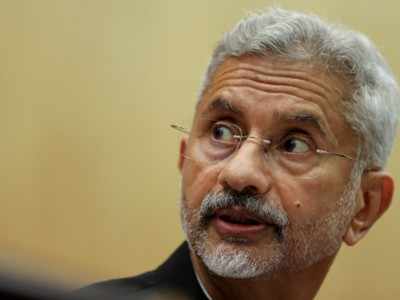India has divergences with US on Afghanistan : EAM S Jaishankar

Whether it is the Indian leadership or the average Indian, “we aspire to bigger things,” said foreign minister S Jaishankar, addressing the India@75: The Freedom Summit organised by News Agency on Sunday.
“The rise of power starts at home and a lot of the progress in the last seven years is very visible at home,” Jaishankar said, pointing to growth and reform in many sectors including “expanding manufacturing, undertaking agricultural reforms, looking at our human resources, improving education and skilling, making it easier to do business, creating a system where we look after our people, health, housing, power and water as basic needs which need to be provided so that the quality of living and the quality of our resources is much better.” That’s how countries like China grew and developed he said.
The Quad, he said, has become an important grouping in a 21st century which is more multipolar. But while India’s interests converge with the US’ in the east, there are divergences in the west, particularly Afghanistan, the minister said.
Jaishankar, however devoted a lot of attention to India’s relationships in the neighbourhood which have come under fire recently. “Before Prime Minister Modi went to Nepal, that country did not get a bilateral visit from our side for 17 years. Sri Lanka did not get one for 35 years. The last Indian Prime Minister before Narendra Modi who went to UAE was Indira Gandhi. If you don’t give attention to your neighbourhood, and your extended neighbourhood, you are not going to be seen as a serious player.”
The difference is showing, he said. “Today, Nepal is importing electricity from India, there is a fuel pipeline which takes petroleum and diesel. Bangladesh is buying electricity from India and a lot of our pre-1965 links are getting restored. If you look at Maldives, we are very much part of their development plans. With Sri Lanka, a lot of the reconstruction after the conflict has had our involvement.”




